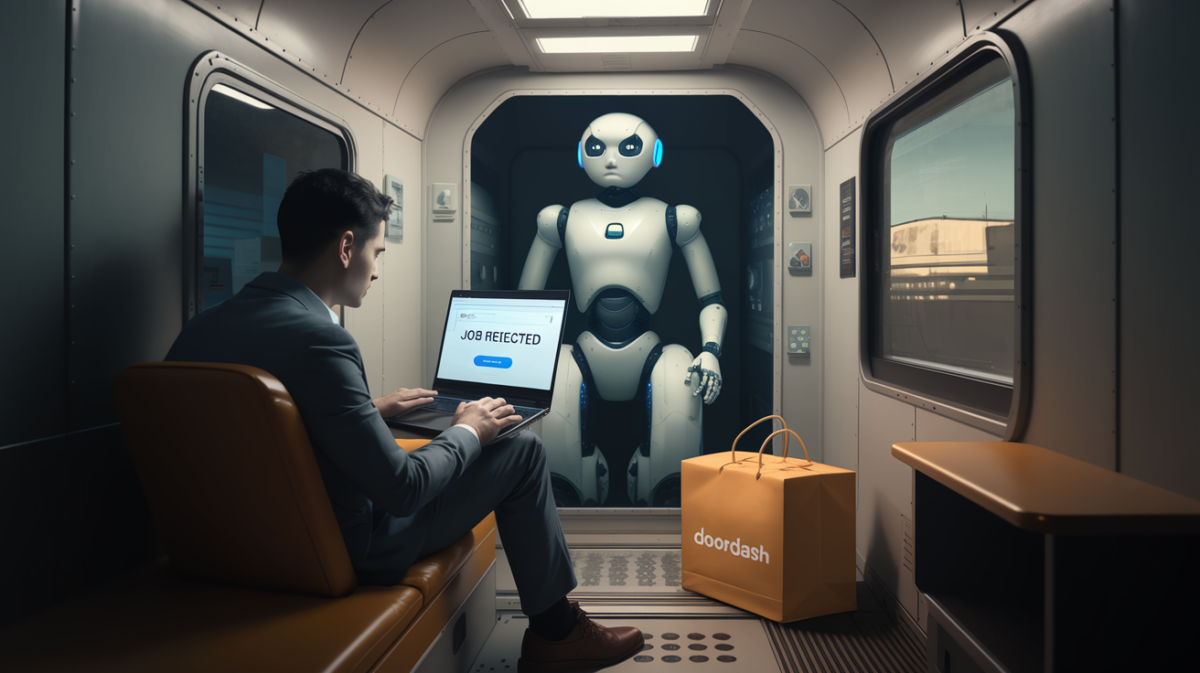The Human Cost of AI’s Rise in the Workforce
In a stark reminder of how rapidly artificial intelligence (AI) is reshaping industries, a software engineer who once earned $150,000 annually has found himself unemployed, rejected from over 800 jobs, and forced to take on gig work like DoorDash to survive. His story highlights the growing anxiety among professionals as AI continues to automate tasks once performed by humans.
How AI Displaced a High-Earning Professional
The engineer, whose identity remains undisclosed, was among the many tech workers whose roles were rendered obsolete by AI-driven automation. His experience mirrors a broader trend: a recent study titled “AI Exposure Predicts Unemployment Risk” found that AI models can accurately forecast job separations, underscoring the technology’s disruptive potential.
- Job Market Decline: Software engineering job listings have plummeted to 65% of their January 2020 levels, a sharper drop than in other tech-related fields.
- Competitive Landscape: With thousands of applicants vying for fewer positions, even highly skilled professionals face unprecedented challenges.
The Struggle to Stay Afloat
After months of fruitless job hunting, the engineer turned to gig economy platforms like DoorDash to pay his bills. Unable to afford traditional housing, he now lives in a trailer—a far cry from his previous six-figure lifestyle. His story is a sobering example of how quickly financial stability can unravel in the face of technological disruption.
Key Challenges Faced by Displaced Workers
- Financial Instability: Sudden job loss can lead to rapid depletion of savings, forcing workers into precarious living situations.
- Emotional Toll: Prolonged unemployment and rejection can erode confidence and mental well-being.
- Limited Safety Nets: Many workers lack access to adequate support systems to navigate career transitions.
Public Reaction and the AI Debate
The engineer’s story has sparked heated discussions online, with platforms like Reddit and YouTube buzzing about AI’s role in job displacement. While some argue that AI will create new opportunities, others warn of a looming crisis if policymakers fail to act.
Comparing AI’s Impact Across Industries
| Industry | AI’s Impact | Vulnerability Level |
|---|---|---|
| Software Engineering | High automation of coding tasks | Very High |
| Customer Service | Chatbots replacing human agents | High |
| Healthcare | AI-assisted diagnostics | Moderate |
What Can Be Done?
As AI continues to advance, experts urge a multi-pronged approach to mitigate its impact on workers:
- Upskilling Programs: Governments and companies must invest in training to help workers transition into AI-resistant roles.
- Policy Interventions: Stronger labor protections and universal basic income (UBI) proposals are gaining traction as potential solutions.
- Corporate Responsibility: Tech firms developing AI tools should consider their societal implications and contribute to retraining initiatives.
Conclusion: A Call for Action
The engineer’s plight is not an isolated incident but a harbinger of broader shifts in the labor market. While AI promises efficiency and innovation, its human cost cannot be ignored. Addressing these challenges will require collaboration between policymakers, businesses, and workers to ensure a future where technology benefits all, not just a privileged few.







